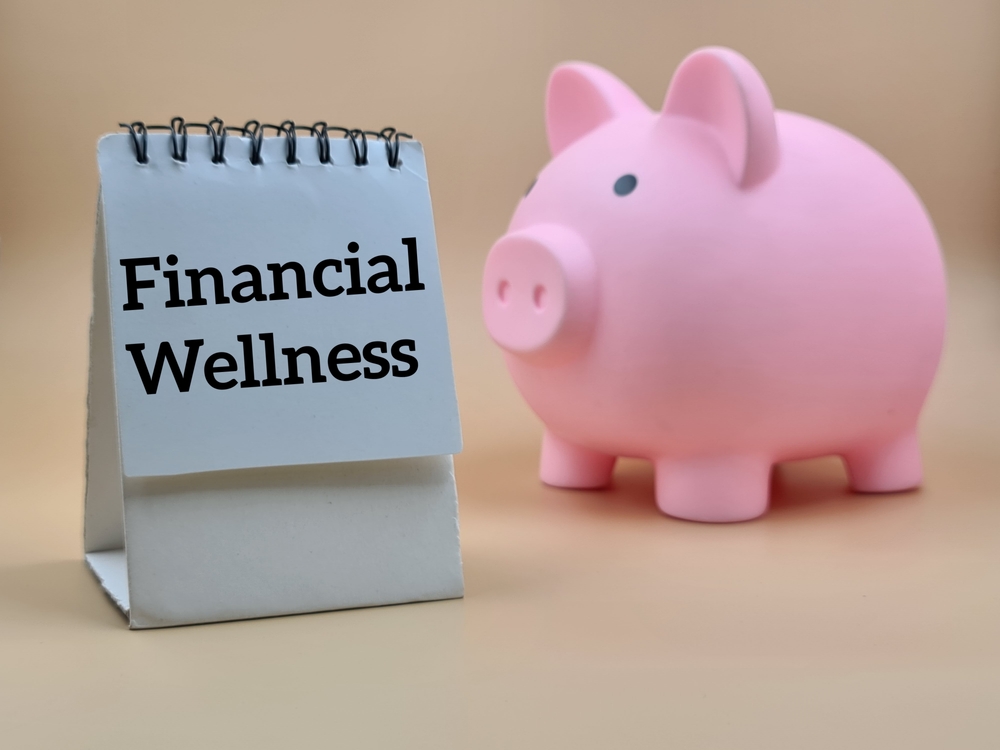Learn how to find your personal state of financial balance, security, and confidence.
There is a lot of buzz around “financial wellness.” But unlike many fads, financial wellness is definitely a worthwhile pursuit.
Overall, financial wellness is about achieving financial stability and satisfaction, both in the short and long term. And, isn’t that what we all want?
Financial wellness refers to the state of being financially secure and feeling confident in your ability to manage your finances. It involves having control over your financial situation and being able to make informed decisions about money.
Financial Wellness Should Not Be Confused With Wealth
Financial wellness is not your net worth, savings balance, income level, where you vacation, or the type of car you drive. It can and should be a goal for anyone at any wealth level.
It is entirely possible to have a high level of financial well-being, even if you are far from affluent. And, many people with much higher incomes can feel worried and stressed about money.
So, What Is Financial Wellness?
The Consumer Financial Protection Bureau has conducted extensive research into defining a conceptual framework for identifying and measuring financial well-being.
Financial well-being can be defined as a state of being wherein a person fully meets current and ongoing financial obligations, feels secure in their financial future, and is able to make choices that allow enjoyment of life.
The now widely accepted definition of financial wellness involves four distinct goals that relate to both your finances and emotions.
1. Control over your day-to-day (month-to-month) finances
The first tenet of financial wellness is that you are making enough to fund your expenses and that you have control over your money. You have a budget, you can live within that budget, and you stick to it.
It is important that you have a steady income that promises to increase over time and will more than meets your expenses.
Furthermore, control means that you have healthy financial habits that enable you to manage your money — pay bills, monitor spending, and manage cash flow. You also know how to use debt if you need to and avoid high interest loans.
A sense of control over today’s finances and confidence that you can meet your financial obligations is one element that gives you peace of mind about money.
2. Earning, spending and saving for the life you want
There are all kinds of ways to live life and the real point of financial wellness is to help you make choices about your money so that you can enjoy life on your own terms.
Financial wellness doesn’t mean you can do anything at any time. It means that you are equipped to make the trade-offs so that you can afford what is really important to you.
Financial wellness involves deeply personal decisions about work, time, relationships, values, education, leisure, community, and more. To achieve financial wellness, it is useful for you to understand your:
- Goals: What do you want out of life?
- Values: What is important to you?
3. Can handle financial emergencies
Everything is not always going to be as it is today. And, bad things will happen that can upset your financial security. If you want financial wellness, you need to be prepared to handle a financial emergency and absorb financial shocks. Here are some things you can do to prepare for financial emergencies:
- Build an emergency fund: Start by setting aside a portion of your income each month into a separate emergency fund. This can help you cover unexpected expenses without having to go into debt. Emergency funds should be in easily accessible cash accounts. The exact amount you need will depend on your spending levels and age. If you are of working age, you should have at least six months of expenses available in cash savings. In retirement, you may want cash representing a much greater number of months or years at the ready.
- Review your insurance coverage: Make sure you have adequate insurance coverage for your health, home, and car. Review your policies regularly to make sure they meet your current needs.
- Diversify your investments: Make sure your investment portfolio is diversified across different asset classes, such as stocks, bonds, and real estate. This can help reduce your overall risk.
- Have a plan and a plan b: Have a plan in place for how you will handle a financial shock, such as cutting expenses or taking on a part-time job. This can help you feel more prepared and less stressed if the unexpected happens.
Being prepared to tackle whatever comes your way will give you peace of mind.
4. On track to long-term financial goals
Financial peace of mind comes from being able to afford the life you want today as well as into the future. Whether you are young and want to buy a house or in middle age and are starting to look toward retirement, you need a plan for how to utilize your money and time to fund today and tomorrow.
The steps involved in achieving long-term financial goals include:
- Making a detailed plan
- Monitoring key financial metrics related to your plan
- Adjusting plans as circumstances change
- Anticipating obstacles to achieving your goals and creating ways to overcome problems
A formal written plan for long-term goals is an important component of financial wellness. Use the NewRetirement Planner to set and maintain your plan.
What Are the Skills You Need to Achieve Financial Wellness?
Anyone can achieve financial wellness and effectively navigate the financial ups and downs of life, but it takes 1) baseline financial know-how, 2) good habits, and 3) key personality traits.
Baseline financial know-how
Financial intelligence is shockingly low in the United States. The average baseline understanding of how personal finance works is probably not adequate for the task of managing money effectively.
While you don’t have to be an expert or a financial whiz, you do need to have a working knowledge of personal finance and that would include a basic understanding of balancing a budget, saving, investing, debt, and more.
Of course, it is also important to know how to find reliable financial information and have frameworks for making financial decisions.
Good habits and financial wellness behaviors
Know-how is important, but putting your knowledge to work will make a difference in your financial well-being. Good financial habits like the following are important:
- Routine money management: People who achieve financial wellness engage in routine money management, including budgeting, saving, investing, paying off debt, and more.
- Goal setting: Setting goals is a way of organizing yourself for success. Goals help provide motivation and direction.
- Financial monitoring: For financial wellness, you want to be able to monitor your progress toward your goals as well as track key financial metrics.
- Ability to take action: It is not enough to be able to set a financial goal, you need to execute on your plans.
Financial wellness personality traits
By cultivating some of these personal traits, you can strengthen your financial wellness and build a solid foundation for your financial future.
- Ability to run your own race: Financial wellness is not an objective one-size-fits-all framework. You can decide what is important to you and set up your own measures of success. Financial wellness means that you aren’t comparing yourself to your peers. You know what is important to you and are making sure you set your own measures of success.
- Self-knowledge: Understanding your own attitudes and behaviors around money is an important step toward financial wellness. This can involve identifying and addressing any negative money habits or beliefs that may be holding you back.
- Discipline and patience: Financial wellness requires self-discipline to stick to a budget, save regularly, and resist the urge to overspend. Being able to delay gratification and stay focused on long-term goals is essential for financial wellness.
- Perseverance: Financial setbacks, such as job loss or unexpected expenses, can be challenging. Perseverance helps you stay on track and continue working towards your financial goals.
- Adaptability: Life is unpredictable, and financial wellness requires the ability to adapt to changing circumstances and adjust your financial plans as needed.
- Growth mindset: Financial well-being can grow out of the thought that you can improve your life.






